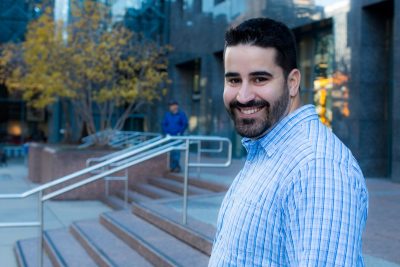Department of Law and Legal Studies:
Master of Arts, Legal Studies
 Front-line officers are considered de facto mental health providers given that police are regularly the first to respond to people with mental illness. But it doesn’t always seem like the police are responding effectively to this population. Research suggests they don’t receive enough training on mental illness and de-escalation techniques.
Front-line officers are considered de facto mental health providers given that police are regularly the first to respond to people with mental illness. But it doesn’t always seem like the police are responding effectively to this population. Research suggests they don’t receive enough training on mental illness and de-escalation techniques.
With valuable guidance from Professor Dale Spencer, I’m studying a Canadian police organization to understand the impact of mental health response units on the broader policing culture. Policing culture is understood as a very masculinized occupation with a significant focus on enforcement-based initiatives such as “fighting” crime, making arrests and laying charges.
Yet mental health response units don’t embody that focus. They represent service-based policing, with partnerships between the police and counsellors at hospitals or community organizations. Understanding their impact on the broader policing culture can identify ways in which police organizations could better respond to people with mental illness in the community.
My hypothesis is that these mental health units are giving rise to a new culture of policing that is challenging the dominant ideology.
Friday, September 9, 2016 in Department of Law and Legal Studies, FPA Voices, People
Share: Twitter, Facebook



